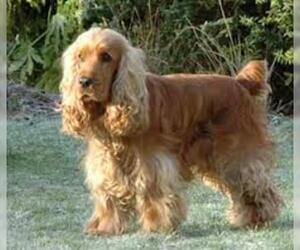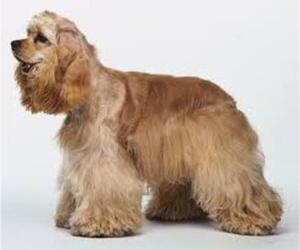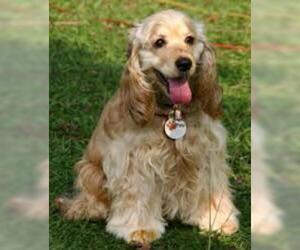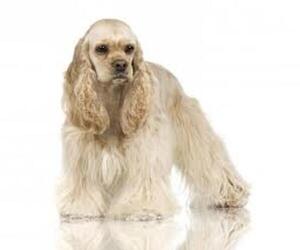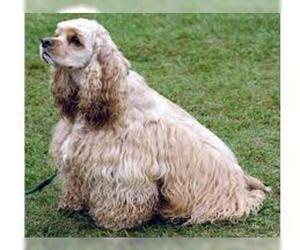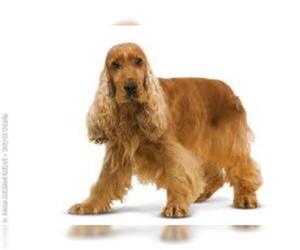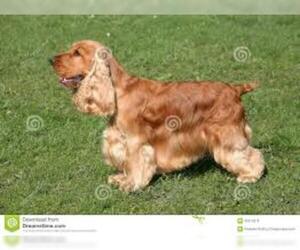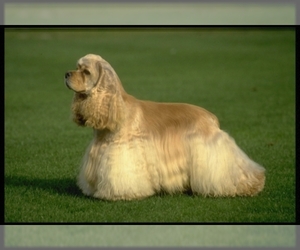
All about Cocker Spaniel dog breed
A.K.A. :Cocker, Cockers, American Cocker, English Cocker, Merry Cocker, Cockie, Cockie Pup, Cockie Doggo, Cockie Baby, Cockie Bean, Cockie Buddy, Cockie Floof, Cockie Fluff, Cockie Snuggle, Cockie Zoomer, Cockie Rascal, Cockie Scout, Cockie Prince, Cockie Princess, Cockie Charm, Cockie Whisper, Cockie Sprout, Cockie Shadow, Cockie Pal, Cockie Muffin, Cockie Wiggle, Cockie Tail, Cockie Ears, Cockie Love, Cockie Friend, Cockie Hunter, Cockie Span, Cockie Pupster, Cockie Cutie, Cockie Sweetie, Cockie Darling, Cockie Angel, Cockie Star, Cockie Joy, Cockie Heart, Cockie Soul, Cockie Wag, Cockie Bounce, Cockie Dash, Cockie Sniff, Cockie Snort, Cockie Kiss, Cockie Hug, Cockie Wink, Cockie Bloom, Cockie Shine, Cockie Glow
Size
Grooming requirements
Exercise requirements
Good with other dogs
Watchdog ability
Energetic
Training requirements
Playful
Affectionate
Good with other pets
Good with children
Good with strangers
Winter
Summer
Healthiness
Protective
Life Span
| Pure Breeds | Member |
| Breeds A - Z | C |
| Breeds by Group | Gun Dog Sporting |
| Breeds by Trait | Good With Kids Low Shedding |
| Overview: | The Cocker Spaniel, a beloved breed with roots in the United Kingdom, was originally bred as a gundog to flush out woodcock. They are instantly recognizable by their medium size, typically weighing 20-30 pounds, their luxurious, often wavy coat (which comes in a variety of colors), and their long, expressive ears that frame their gentle, eager-to-please eyes. Known for their merry and affectionate temperament, Cockers are generally good-natured, intelligent, and relatively easy to train, making them an excellent choice for families with children and even first-time dog owners. While adaptable, their moderate exercise needs can be met with daily walks and playtime, making them suitable for apartment living as long as they receive sufficient mental and physical stimulation. Prospective owners should be aware of certain health considerations, including ear infections (due to their long ears), eye conditions like cataracts, and hip dysplasia, which highlight the importance of responsible breeding and regular veterinary check-ups. |
F.A.Q.
All You Need to Know About the Cocker Spaniel Breed
The Cocker Spaniel is a beloved medium-sized dog, originally bred in the UK for hunting woodcock. Known for their merry, affectionate, and intelligent temperament, they make excellent family pets. Physically, they boast a sturdy build, long pendulous ears, and a beautiful, silky coat that requires regular grooming to prevent matting and tangles. Their moderate size and adaptable nature mean they can thrive in both houses with yards and apartment living, provided they receive sufficient daily exercise – around 30-60 minutes of walks or playtime. Cocker Spaniels are generally good with children and other pets, making them a popular choice. Prospective owners should be aware of common health concerns such as ear infections, eye conditions like progressive retinal atrophy, and hip dysplasia, necessitating regular vet check-ups. Overall, a devoted and charming companion.The average weight for a Cocker Spaniel is typically between 20-30 pounds. Adult male Cocker Spaniels tend to be slightly heavier, usually ranging from 25-30 pounds, while females are generally 20-25 pounds. Maintaining a healthy weight for a Cocker Spaniel is crucial for their well-being.
Wondering about the Cocker Spaniel height? You've come to the right place! When it comes to the average size of this delightful breed, most adult Cocker Spaniels stand between 14 to 15 inches tall at the shoulder (or withers).
This measurement gives a good indication of how tall is a Cocker Spaniel typically. While individual genetics can play a role, you'll generally find that male Cocker Spaniels tend to be at the higher end of this range, often around 15 inches, while females might be slightly shorter, closer to 14 inches. However, there's always some natural variation, and perfectly healthy Cockers can fall slightly outside this range.So, if you're looking for a dog that's a perfect medium-sized companion, the Cocker Spaniel's height makes them a great fit for many homes!Cocker Spaniels boast a stunning array of Cocker Spaniel colors, catering to diverse preferences. AKC recognized Cocker Spaniel colors include black, light cream, cream, red, sable, tan, and various parti-colors like black and tan, black and white, brown and tan, brown and white, red and white, and tri-color (black, white, and tan or brown, white, and tan). Roans such as blue roan, lemon roan, orange roan, and red roan are also accepted. You might also encounter rare coat types and exotic Cocker Spaniel variations not officially recognized by all major kennel clubs, which can influence pricing. These can include chocolate, liver, blue, lilac, and even patterns like merle (though merle is not typically found in purebred Cocker Spaniels and can indicate crossbreeding). When considering a specific color, always verify its status with major kennel clubs like the AKC if show or breeding potential is a factor.
Cocker Spaniel Personality & TemperamentThe Cocker Spaniel personality is renowned for its charming and affectionate nature. These dogs are typically very friendly, outgoing, and possess a strong desire to please their human companions, making them wonderfully loyal and devoted family members. Their temperament of Cocker Spaniel is generally gentle and cheerful, thriving on companionship and interaction. They are highly sociable and enjoy being involved in family activities, often forming strong bonds with all household members.Cocker Spaniels are quite adaptable to apartment living as long as they receive adequate daily exercise and mental stimulation. While they appreciate a yard, it's not strictly necessary if their walking and play needs are met. They are known for being excellent with children, displaying patience and a playful demeanor, though supervision is always recommended with very young children. Their gentle nature often extends to other pets, and they generally get along well with other dogs and cats, especially if socialized from a young age. Their cheerful disposition and loving nature make them a popular choice for families seeking a devoted and engaging canine companion.
The Cocker Spaniel temperament is generally known for being affectionate, gentle, and intelligent, making them wonderful companion dogs. They are typically very friendly and sociable, eager to please their families and form strong bonds. Their loyal nature means they thrive on human companionship and are often described as "Velcro dogs" due to their desire to be close to their owners.
Cocker Spaniels are highly adaptable, and with proper training and exercise, can adjust well to apartment living. They are usually excellent with children, exhibiting a patient and playful demeanor. Similarly, they tend to get along well with other pets, especially when socialized from a young age.While generally good-natured, their sensitive side means they respond best to positive reinforcement training methods and can become anxious if left alone for extended periods. They can also display a touch of stubbornness, so consistent and patient training is key to managing their playful and sometimes independent spirit. Early socialization is crucial to ensure a well-adjusted and confident adult dog.Cocker Spaniel Care: Daily Maintenance & Health Tips
Cocker Spaniels are charming companions requiring consistent care. For optimal Cocker Spaniel care, be prepared for regular grooming: their beautiful coats need daily brushing to prevent mats and tangles, plus professional grooming every 4-6 weeks for trims and tidying. Their long, floppy ears are prone to infections, so weekly cleaning is crucial. Due to their brachycephalic (short-nosed) anatomy, they can be sensitive to extreme heat; avoid strenuous exercise during warm weather to prevent overheating. While not a high-energy breed, they still need moderate daily exercise, such as two 20-30 minute walks, to stay healthy and happy. This is a low-energy dog breed compared to some, but regular activity prevents boredom and weight gain.Dietary considerations are important for preventing obesity, a common issue for Cockers. Feed a high-quality, age-appropriate dog food and monitor portion sizes closely. Regular dental care, including brushing and professional cleanings, is essential to prevent periodontal disease. Common health concerns include ear infections, skin issues (often related to allergies or lack of grooming), and dental problems. Regular vet check-ups are vital for early detection and prevention of these and other conditions. Pay attention to their eyes, as they can be prone to certain eye conditions. Understanding how to care for a Cocker Spaniel means prioritizing grooming, moderate exercise, a balanced diet, and proactive health management to ensure a long, healthy life for your furry friend.Cocker Spaniel Activity Level: How Active Are Cocker Spaniels?The Cocker Spaniel activity level is generally moderate, balancing a playful energy with a love for comfortable lounging. They are not hyperactive, but they are also not couch potatoes. Potential owners evaluating how active are Cocker Spaniels should understand their need for consistent daily engagement.Their exercise needs typically involve at least 30-60 minutes of active play or walking per day. This can be broken into two shorter sessions. They enjoy exploring on leash walks, playing fetch in a secure yard, and participating in fun scent games. Due to their history as gundogs, they have a natural curiosity and enjoy sniffing out interesting things.Cocker Spaniels love to play with their families and thrive on interaction. They enjoy puzzle toys, chasing balls, and engaging in gentle tug-of-war. Their playtime preferences often involve activities that mentally stimulate them as well as physically tire them out.While not severely brachycephalic, Cocker Spaniels do have a slightly flattened face, making them more susceptible to overheating. Therefore, strenuous exercise should be limited during hot weather, and they should always have access to fresh water and shade. Owners should be mindful of their breathing during intense activity.Cocker Spaniels are known for their ability to balance short bursts of energy with long periods of rest. After an engaging walk or play session, they are typically content to snuggle on the sofa for an extended nap. They are quite adaptable in this regard.They are generally suitable for active families who enjoy daily walks and interactive play. However, they can also adapt well to lower-energy households as long as their daily exercise needs are met. They are not a breed that can be left alone to entertain themselves all day; they thrive on companionship and participation in family activities. Their adaptability and charming personalities make them wonderful companions for a variety of lifestyles, provided their moderate Cocker Spaniel activity level is respected.
Breed Breakdown: What Experts Say About the Cocker Spaniel
I would rate the Cocker Spaniel's "Size" trait a 3 out of 10.While not Miniature or Toy-sized, the Cocker Spaniel is firmly in the small to medium range, leaning heavily towards small. Their average height typically falls between 14-15 inches at the shoulder, and their weight ranges from 20-30 pounds. They possess a compact and sturdy body structure, but are not delicate. Compared to many other companion dogs, especially popular breeds like Labradors, Golden Retrievers, or even Australian Shepherds, Cocker Spaniels are noticeably smaller. They are exceptionally well-suited for apartment living due to their manageable size and don't require vast amounts of indoor space. Their compact build also makes them excellent travel companions, fitting comfortably in crates designed for smaller breeds and being easy to transport. For households with space constraints, their size is a definite advantage, allowing them to coexist comfortably without feeling cramped.
I would rate the Cocker Spaniel's grooming requirements as an 8. They are a relatively high-maintenance breed when it comes to grooming. Their beautiful, long, silky double coat is prone to matting and tangling, especially around the ears, legs, and belly, necessitating daily brushing to prevent significant issues. While they are moderate-to-high shedder, it's the coat's texture that demands the most attention. Regular professional grooming every 6-8 weeks is highly recommended to maintain their coat in good condition and prevent excessive growth, which can become unmanageable for many owners. Their long, floppy ears are also particularly susceptible to infections and require frequent cleaning to keep them dry and free of debris. Additionally, their feet can collect dirt and debris, requiring attention to prevent matting between the paw pads. While not overly prone to skin fold issues, regular nail trims and bathing are essential, and their susceptibility to allergies can sometimes manifest as skin problems that require specific grooming or bathing products. Compared to many other companion dogs, Cocker Spaniels definitely require frequent, specialized grooming to keep them healthy and comfortable.
I would rate the Cocker Spaniel's exercise requirements as a 7 out of 10.Cocker Spaniels are an active breed with a working dog heritage, meaning they possess a significant amount of energy and stamina. While not in the same league as a Border Collie, they are far from a couch potato. They generally require at least an hour to an hour and a half of dedicated exercise daily, which should ideally be broken into a couple of sessions. This isn't just a leisurely stroll; they thrive on brisk walks, retrieving games, and opportunities to run in a secure area. Their curiosity and intelligence also mean they benefit greatly from mentally stimulating activities like scent work or basic agility, which taps into their natural instincts. Failure to provide sufficient physical and mental stimulation can lead to boredom, destructive behaviors, and weight gain. While they can tolerate a less active day occasionally, a structured routine of moderate to vigorous activity is crucial for their physical health and mental well-being. Their deep chests and history as gundogs indicate good lung capacity, and unlike some brachycephalic breeds, their respiratory systems are generally robust enough to handle sustained movement, though common sense regarding extreme heat should always be applied. They truly thrive when given opportunities to move and engage their senses.
The Cocker Spaniel's "Watchdog Ability" would generally be rated around a 4 out of 10.While Cockers are alert and will typically bark at unfamiliar sounds or people at the door, their territorial instincts are not strong enough to make them truly effective deterrents. They are more likely to offer a "welcome bark" than a "go away bark." Their primary goal is often to investigate the new arrival, not to scare them off. They are excellent at providing an *early warning* that someone is present, fulfilling the role of an auditory alert system. However, they lack the protective drive and intimidating presence to meaningfully deter an intruder. They are far more of a passive companion, capable of signaling an arrival, but not of providing a sustained defense or convincing an unwanted guest to leave.
Rating: 8/10Cocker Spaniels generally rate highly for their "Good with Other Dogs" trait. They are typically known for their sweet, gentle, and eager-to-please nature, which extends to their interactions with other canines. Most Cockers are quite sociable and enjoy the company of other dogs, often displaying playful and adaptable behavior. They tend to get along well with dogs of various sizes and energy levels, though their own moderate energy means they can keep up with active playmates but are equally content with calmer companions.While most Cockers thrive in canine company and can be excellent additions to multi-dog households, their sensitive nature means that proper socialization from a young age is still crucial. This helps them build confidence and positive associations with other dogs. Without adequate early exposure, like any breed, they *could* become a bit more reserved or anxious around unfamiliar dogs. However, true aggression or dominance is relatively rare in the breed; any such instances are usually outliers or a result of significant behavioral issues rather than a typical breed trait. They generally require careful introductions, not due to inherent aggression, but rather to ensure their sensitive personality isn't overwhelmed by a pushy or boisterous new dog. With proper introductions and ongoing positive experiences, the vast majority of Cocker Spaniels coexist very peacefully and happily in multi-dog environments, often forming strong bonds with their canine housemates.
I would rate the Cocker Spaniel's "Energetic" trait at a 7 out of 10.Cocker Spaniels are naturally active and spirited dogs, certainly not laid-back in the way some companion breeds might be. They were originally bred as gun dogs, specifically for flushing out game, which required a good deal of stamina and a keen desire to work. This inherent drive translates into a need for consistent physical and mental stimulation in a home environment. They are typically very playful, enjoying games of fetch, walks, and other interactive activities. They possess a decent level of endurance, able to keep up on moderate hikes or extended play sessions, and readily participate in various outdoor or athletic pursuits like obedience, agility, or scent work. However, their brachycephalic anatomy, characterized by a shorter muzzle, can somewhat affect their stamina and exercise tolerance, especially in hot or humid weather. While not as pronounced as in extremely brachycephalic breeds, it means they can overheat more easily and may not have the same lung capacity for truly high-intensity, prolonged activities as some other working or sporting breeds. Therefore, while they are energetic and require regular exercise, their brachycephalic features place a practical limit on their absolute extreme energy output, preventing them from reaching the highest tier of endurance often seen in breeds like Border Collies or Siberian Huskies.
I would rate the Cocker Spaniel's "Training Requirements" a 6 out of 10.While intelligent and eager to please, Cocker Spaniels aren't a "set it and forget it" breed. They are generally responsive to commands and thrive on positive reinforcement, making them quite trainable. However, their sensitive nature means harsh corrections are counterproductive, and their sometimes-stubborn streak, coupled with a relatively short attention span, necessitates consistent, engaging, and varied training sessions. They absolutely require a structured routine to prevent undesirable behaviors from taking root. While not overly demanding, they aren't entirely beginner-friendly in the sense that a new owner might underestimate the need for sustained effort and patience. Experienced handling isn't strictly necessary, but an owner willing to dedicate consistent time to training, understanding that a gentle yet firm approach is best, will find them rewarding. They are prone to developing separation anxiety if not properly socialized and trained for independence, adding another layer to their training needs beyond basic obedience.
I'd rate the Cocker Spaniel's "Playful" trait a solid 8 out of 10. Cocker Spaniels are naturally spirited dogs, brimming with an infectious enthusiasm for life. They possess a high typical activity level and absolutely adore games and interactive playtime, often initiating play themselves. Their attention-seeking behavior is charmingly persistent, and they respond to toys and opportunities for fun with unbridled joy. While not hyperactive, they are far from laid-back compared to many other companion breeds, constantly seeking connection and engagement, making them incredibly fun-loving and lively companions.
I'd rate the "Affectionate" trait of the Cocker Spaniel breed a 9 out of 10.Cocker Spaniels are renowned for their incredibly loving and people-oriented nature. They possess an intense desire for human companionship, often described as "velcro dogs" due to their tendency to follow their owners from room to room. Physical closeness is paramount for them; they thrive on cuddling, lap-sitting, and generally being in close proximity to their family members. Their loyalty is unwavering, and they are highly sensitive to their owner's emotions, often offering comfort when sensing distress. This breed truly thrives on affection and close interaction, often becoming anxious if left alone for extended periods, showcasing a deep emotional dependency rather than an independent streak compared to most other companion dog breeds.
I would rate the Cocker Spaniel's "Good with Other Pets" trait a 9 out of 10.Cocker Spaniels are generally known for their affectionate, gentle, and eager-to-please nature, which extends to their interactions with other animals. They typically exhibit a low prey drive, especially when well-socialized from a young age, meaning they are less likely to view smaller pets like cats or rabbits as prey. While individual personalities vary, resource guarding is not a predominant trait in the breed, and they are often happy to share their space and toys, particularly with proper training and clear boundaries. They are highly adaptable and, with their sociable disposition, usually integrate very well into multi-pet households, often forming strong bonds with their animal companions. While socialization is crucial for any breed to ensure peaceful coexistence, Cocker Spaniels are naturally predisposed to being friendly and accepting of other animals, often requiring less intensive intervention than some other breeds to be good companions to a variety of pets. They thrive on companionship, and this often extends to their furry housemates.
The Cocker Spaniel earns a solid 8 out of 10 for "Good with Children." They are renowned for their gentle and affectionate nature, making them naturally inclined to be good family pets. Their playful spirit means they often enjoy interacting with children, happily engaging in games of fetch or other supervised activities. Cockers are generally quite patient and tolerant of the usual noise and bustling activity that comes with a household with kids. While they are often very loving, it's important to note that like any breed, proper socialization from a young age and respectful interaction from children are key to fostering the best relationship. They thrive in a family setting where they receive attention and are included in activities, making them a wonderful and generally adaptable companion for children of various ages.
I'd rate the Cocker Spaniel's "Good with Strangers" trait a solid 8 out of 10. This breed is generally known for its delightful and affable nature, often greeting unfamiliar adults with a wagging tail and an eager desire for attention. They are naturally outgoing and possess a cheerful disposition that extends to new acquaintances. While they aren't typically guarding dogs and are more likely to seek affection than bark defensively, early socialization is still beneficial to ensure their inherent friendliness blossoms into confident, consistent behavior. They adapt well to public settings and guest-filled homes, enjoying being part of the action rather than retreating. While a well-bred Cocker is naturally inclined to be welcoming, consistent positive experiences with diverse people help reinforce this wonderful trait.
I'd rate the Cocker Spaniel's "Winter" tolerance at a 6.Cocker Spaniels possess a dense, double coat that offers a decent level of insulation, and their moderate size and typically healthy body fat help in retaining warmth. They are not brachycephalic, so they don't face the respiratory challenges in cold air that breeds like Pugs or Bulldogs do. This allows them to enjoy outdoor activity in moderately cold temperatures without immediate risk. However, while their coat is good, it's not as thick as that of a Siberian Husky or Newfoundland, nor do they have the sheer bulk of a Great Pyrenees. Prolonged exposure to very low temperatures or extreme winter conditions would put them at risk of hypothermia, especially if their fur becomes wet. Compared to many other companion dogs, they don't necessarily require drastically different care, but owners in genuinely cold climates should be mindful of their outdoor time, watch for shivering, and consider protective measures like sweaters or booties during extended outings or in very harsh conditions. They can tolerate winter, but they aren't built for it.
I would rate the Cocker Spaniel's "Summer" tolerance as a 4.While not as severely brachycephalic as breeds like the Bulldog, Cocker Spaniels do possess a slightly shortened muzzle compared to some longer-snouted breeds, which can make them somewhat less efficient at panting to regulate their body temperature. They have a medium-length coat that, while not extremely thick, can still trap heat, especially if not well-groomed. This combination makes them more susceptible to overheating and heatstroke than breeds with longer muzzles and single, short coats. They are not naturally equipped to withstand prolonged exposure to high temperatures or intense exercise in the heat. They absolutely require special care in summer months compared to many other companion dogs. Owners should prioritize indoor activities during peak heat, provide constant access to fresh water and shade, and be vigilant for signs of overheating. Air conditioning or fans are often necessary indoors, and outdoor activities should be limited to cooler parts of the day, if at all, to prevent serious health risks.
I would rate the "Healthiness" trait of the Cocker Spaniel breed a 6 out of 10.While not as robust as some truly hardy breeds, the Cocker Spaniel isn't plagued by the severe, life-limiting health issues seen in breeds with extreme physical characteristics. They have a decent life expectancy of 10-14 years. However, they are prone to a significant number of breed-specific health concerns that prevent them from reaching a higher score. These include a predisposition to various eye conditions like progressive retinal atrophy and glaucoma, ear infections (due to their long, pendulous ears), hip and elbow dysplasia, patellar luxation, heart conditions (like dilated cardiomyopathy), and certain autoimmune diseases. Skin allergies are also fairly common. While responsible breeding and preventive care, such as regular ear cleaning and vet check-ups, can mitigate some of these issues and improve their quality of life, these genetic predispositions mean they often require more dedicated health management than a truly low-maintenance breed. They are not considered high-maintenance in terms of temperament or exercise needs, but their potential health issues do make them moderately high-maintenance from a veterinary care perspective compared to some generally healthier companion dogs.
I'd rate the "Protective" trait of the Cocker Spaniel breed at a 3 out of 10.While Cocker Spaniels are incredibly loyal and devoted to their families, their protective instincts are generally limited to being excellent alarm systems. They are highly alert and will certainly bark at anything unusual, making them good watchdogs in the sense that they'll notify you of an approaching stranger or an unfamiliar sound. However, their small size, gentle nature, and desire for affection typically mean they'll greet a stranger with a wagging tail rather than a confrontational stance. They lack the territorial aggression and physical deterrence needed for true guard dog duties. They are quintessential companion dogs, offering emotional support and lively companionship, but not meaningful physical protection in a household setting.
I would rate the Cocker Spaniel's "Life Span" trait a 7 out of 10.Cocker Spaniels are generally considered an average to slightly above-average long-lived breed compared to other companion dogs. Their average life expectancy typically falls between 10 to 14 years, with many individuals living healthy lives well into their teens. While they are prone to certain health issues like hip dysplasia, patellar luxation, various eye conditions (glaucoma, cataracts, progressive retinal atrophy), and ear infections due to their long, droopy ears, these are often manageable with early detection and proper veterinary care. Responsible breeding practices significantly mitigate the risk of many genetic predispositions, and a healthy diet, regular exercise, and consistent preventative care from owners further contribute to their longevity. They don't typically experience the extremely short lifespans seen in some giant breeds, nor do they consistently reach the exceptional longevity of certain smaller breeds known for their very long lives.
Cocker Spaniel Puppies for saleSee all puppies for sale
Cocker Spaniel Dogs for adoptionSee all dogs for adoption
Cocker Spaniel BreedersSee all breeders
Similar Dog Breeds for Cocker Spaniel
Breed Mixes of Cocker Spaniel
Quick Breed Selector 0 - not important, 1 - smallest, 10 - largest
Variants & Mistakes :Cocker Spanniel, Coker Spaniel, Cocher Spaniel, Cokker Spaniel, Cocker Spaneil, Kocker Spaniel, Cokr Spaniel, Cokar Spaniel, Ccker Spaniel, Cocer Spaniel, Cocker Spniel, Cocker Spanil, Cocker Spaneal, Cocker Spanell, Cokker Spanniel, Cocker Spaniyel, Cocker Spanial, Cocker Spanual, Koker Spaniel, Cockr Spaniel, Cokker Spaneil, Cocker Spaiel, Cockier Spaniel, Cocka Spaniel, Coker Spanniel, Cocker Spaneel, Cocker Speaniel, Cocker Spaneill, Cocker Spaniale, Cocker Spaniell, Cocker Spanniell, Cockor Spaniel, Cockerr Spaniel, Cockker Spaniel, Cockr Spaneil, Cockr Spanniel, Cokr Spanniel, Cokr Spaneil, Cokr Spaniall, Cokr Spanniall, Coker Spanial, Coker Spanniall
